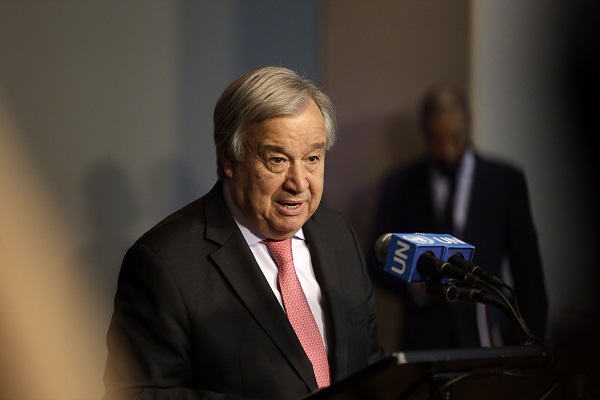United Nations, Addressing the surge in protests around the world, UN Secretary General Antonio Guterres urged protesters on Friday to follow the example of Mahatma Gandhi and pursue the path of non-violence.
“I call on protestors to follow the examples of Gandhi, Martin Luther King, Jr. and other champions of non-violent change,” he said at news conference here.
At the same time, Guterres said: “Security forces must act with maximum restraint, in conformity with international human rights standards.”
“There can be no excuse for violence from any quarter,” he added.
“I am deeply concerned that some protests have led to violence and loss of life and governments have an obligation to uphold the freedoms of expression and peaceful assembly, and to safeguard civic space,” he said.
The UN chief warned that the protests were a clear sign “that there is a growing deficit in trust between people and political establishments, and rising threats to the social contract”.
“We need to think about the underlying factors” behind the protests, he said, adding that leaders can show that they understand the reasons for the wave of protests and through smart policies “point the way to a more just world”.
In recent days, the world has seen protests from Chile in Latin America to Britain in Europe to Iraq in the Middle East to Ethiopia in Africa and Hong Kong in Asia – and places in between – over a diverse set of causes.
In some cases the protests have been violent, in others, authorities have cracked down with violence and in yet others, violence has been reported on both sides.
“Disquiet in peoples’ lives is leading to anything but quiet in streets and city squares” and they may be triggered be unique causes, “yet there are commonalities that span the continents – and that should force all of us to reflect and respond,” Guterres said.
“Even where people are not protesting, they are hurting and want to be heard,” he said.
He said that the factors behind the protests range from the economic like rising prices and inequalities to the political like corruption and human rights.
“The world is also wrestling with the impacts of globalisation and new technologies, which have increased inequalities within societies,” he added.









